Removal Procedure
Caution: Refer to Brake Dust Caution in the Preface section.
- Raise the vehicle. Refer to Lifting and Jacking the Vehicle in General Information.
- Remove the tire and wheel assembly. Refer to Tire and Wheel Removal and Installation in Tires and Wheels.
- Inspect the brake caliper assembly. Refer to Brake Caliper Inspection .
- Remove the front brake caliper assembly, relocate the brake caliper to the side. Refer to Front Brake Caliper Replacement .
- Inspect the brake pads. Refer to Brake Pad Inspection .
- Remove the front brake pads from the mounting bracket, inboard brake pad shown.
- Inspect the brake hardware. Refer to Front Disc Brake Mounting and Hardware Inspection .
- Remove the brake pad retaining clips from the mounting bracket, inboard brake pad shown.
- Remove the brake caliper mounting bracket retaining bolts, lower bolt shown.
- Remove the brake caliper mounting bracket.
- Remove the guide pin seals from the brake caliper mounting bracket.
- Inspect the brake rotor. Refer to Brake Rotor Surface and Wear Inspection .
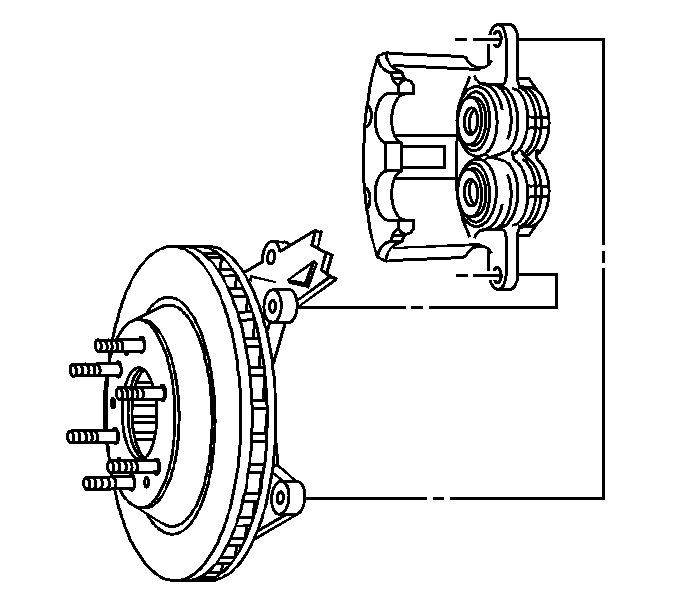
Notice: Support the brake caliper with heavy mechanic wire, or equivalent, whenever it is separated from its mount and the hydraulic flexible brake hose is still connected. Failure to support the caliper in this manner will cause the flexible brake hose to bear the weight of the caliper, which may cause damage to the brake hose and in turn may cause a brake fluid leak.
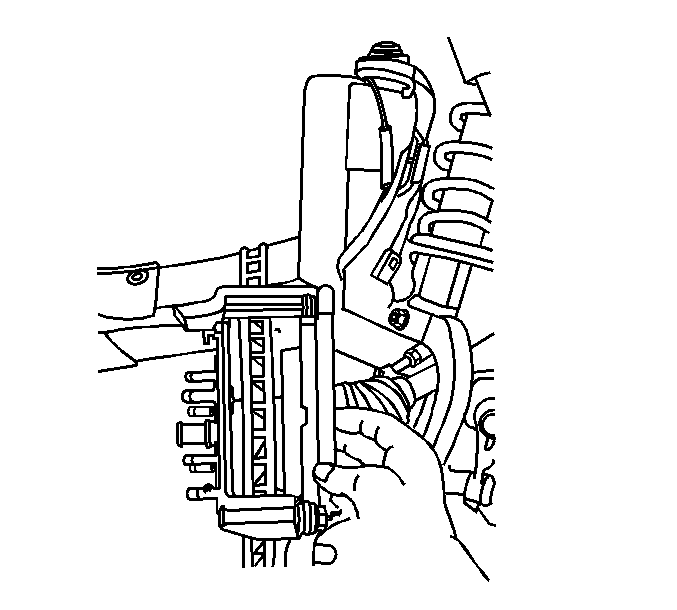
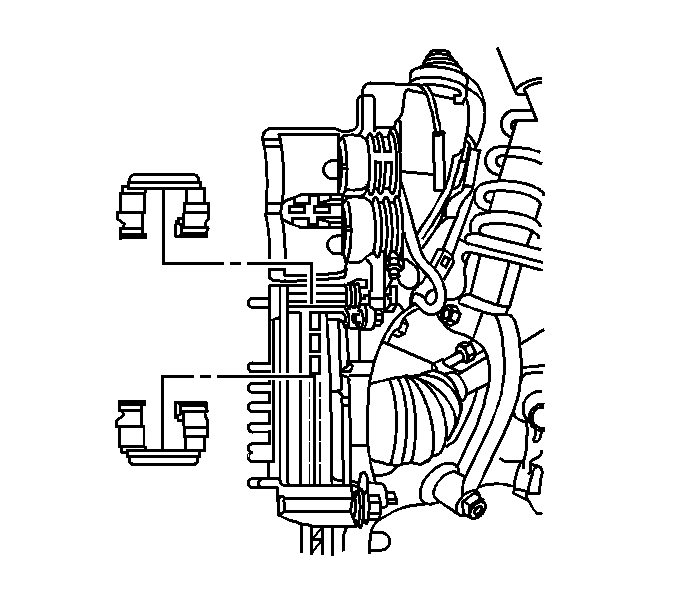
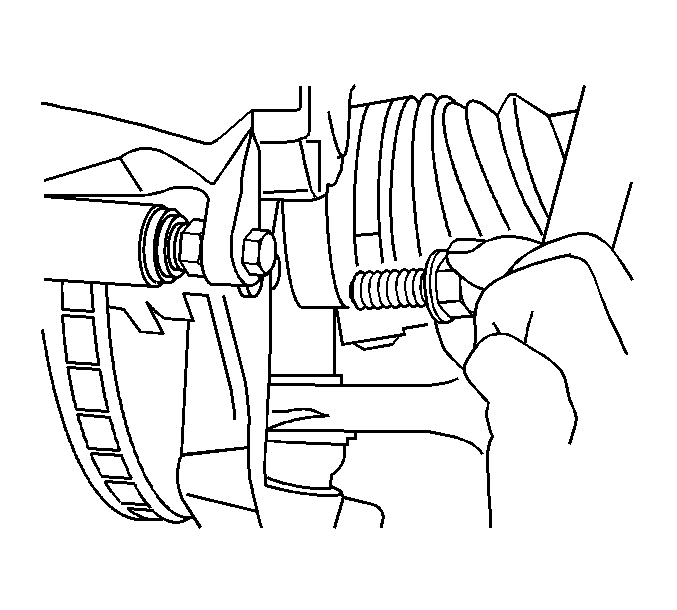
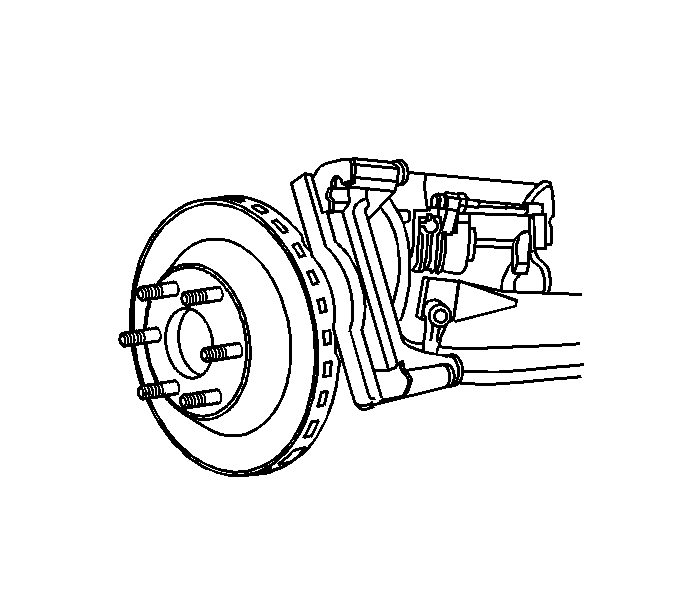
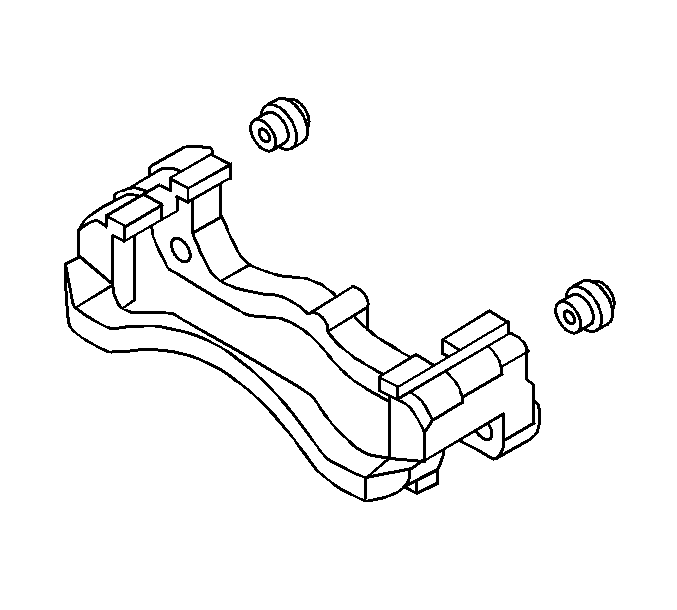
Installation Procedure
- Install the guide pin seals on the mounting bracket.
- If the guide pins and brake pad retaining clips are to be reused, use denatured alcohol to clean them.
- Dry the brake guide pins and brake pad retaining clips with non-lubricated, filtered air.
- Apply high temperature silicone brake lubricant to the brake caliper guide pins. DO NOT apply the lubricant to the brake pad retaining clips.
- Install the brake caliper mounting bracket.
- Install the caliper mounting bracket bolts.
- Install the rear brake pad hardware to the brake caliper mounting bracket.
- Install the brake pads to the brake caliper mounting bracket.
- Install the brake caliper assembly. Refer to Front Brake Caliper Replacement
- Install the tire and wheel assembly. Refer to Tire and Wheel Removal and Installation in Tires and Wheels.
- Lower the vehicle. Refer to Lifting and Jacking the Vehicle in General Information.
- Pump the brake pedal slowly and firmly in order to seat the brake pads.

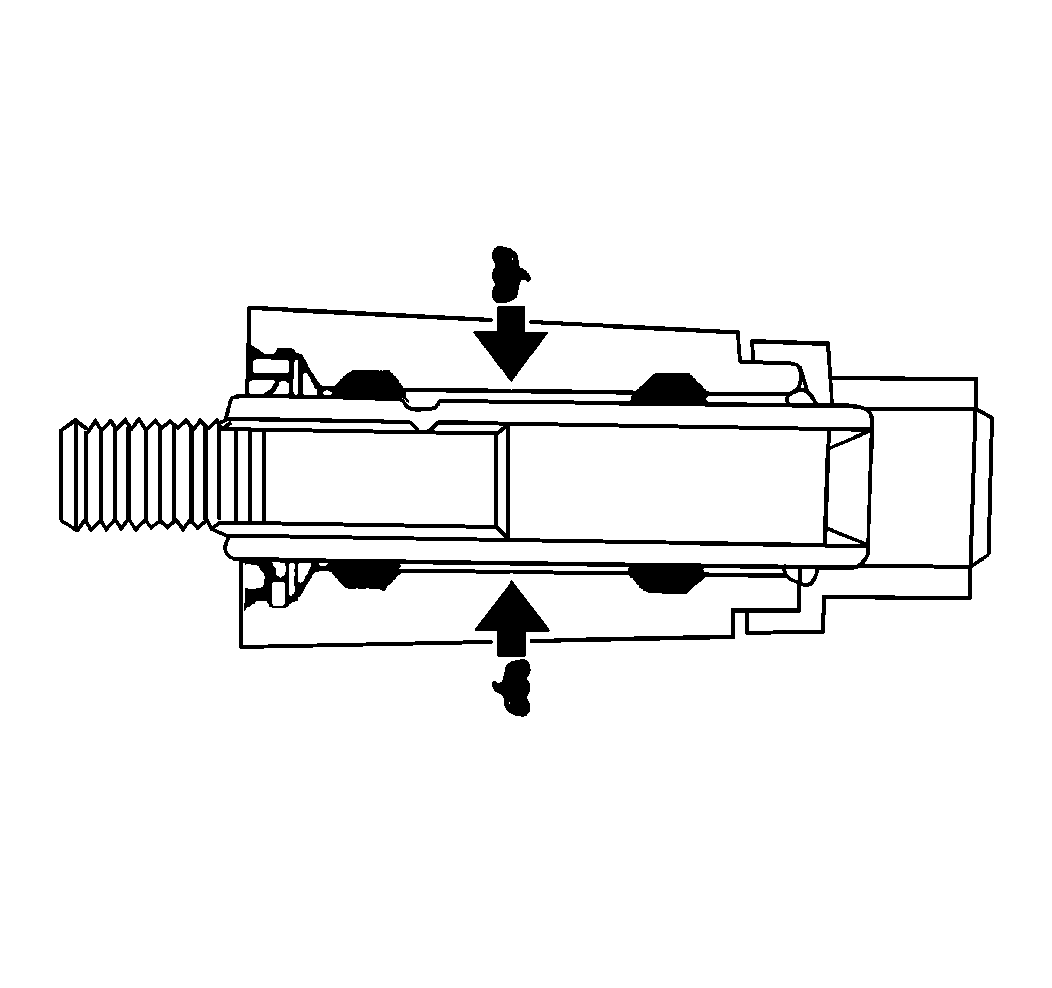

Notice: Use the correct fastener in the correct location. Replacement fasteners must be the correct part number for that application. Fasteners requiring replacement or fasteners requiring the use of thread locking compound or sealant are identified in the service procedure. Do not use paints, lubricants, or corrosion inhibitors on fasteners or fastener joint surfaces unless specified. These coatings affect fastener torque and joint clamping force and may damage the fastener. Use the correct tightening sequence and specifications when installing fasteners in order to avoid damage to parts and systems.
Tighten
Tighten the caliper mounting bracket bolts to 150 N·m (110 lb ft).



Caution: Do not move the vehicle until a firm brake pedal is obtained. Failure to obtain a firm pedal before moving vehicle may result in personal injury.
Caution: Do not move the vehicle until a firm brake pedal is obtained. Failure to obtain a firm pedal before moving vehicle may result in personal injury.
